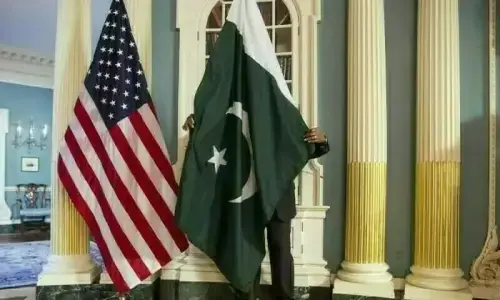WASHINGTON/ISLAMABAD – Pakistan is forging a new phase in its strategic and economic engagement with the United States as the two allies move closer to implementing a deal for the export of rare earth minerals. The development comes amid strong political opposition demands for the government to disclose the full details of all agreements struck with Washington.
US Strategic Metals (USSM), which signed a Memorandum of Understanding (MoU) with Pakistan in September to invest roughly $500 million in mineral processing facilities, recently dispatched its first consignment of mineral samples to the US to advance the deal. Sources in Washington anticipate this will pave the way for Pakistan’s formal entry into the global supply chain for critical minerals, a sector vital for global industries and national security.
Strategic Partnership and Resource Wealth
The initial shipment, prepared in collaboration with the Frontier Works Organisation (FWO), includes antimony, copper concentrate, and rare earth elements such as neodymium and praseodymium. USSM described the delivery as a “milestone in the Pakistan–US strategic partnership,” establishing a roadmap for cooperation across the entire mineral value chain. USSM CEO Stacy W. Hastie hailed the delivery as opening “an exciting chapter of collaboration.”
For Pakistan, whose mineral wealth is often estimated at around $6 trillion, the agreement offers a significant gateway into the global critical minerals economy, promising billions of dollars in potential revenue, job creation, and technology transfer. For the US, the partnership is a key step in securing access to raw materials and reducing reliance on external monopolies that currently dominate the global minerals market.
Political Opposition Demands Accountability
Despite the economic promise, the opposition Pakistan Tehreek-e-Insaf (PTI) has raised serious concerns, terming the agreements “secret deals.” PTI Information Secretary Sheikh Waqqas Akram demanded that the government disclose full details of all alleged agreements with the United States.
Referring to the USSM shipment and claims published by the Financial Times regarding a supposed plan to offer the Pasni Port to Washington, the spokesperson warned that such “reckless, lopsided, and secretive agreements would further inflame the already volatile situation in the country.” While military sources have disputed the Financial Times claims, calling the port proposal a “commercial idea” rather than “official policy,” the opposition insists on parliamentary and public oversight.
Akram urged the government to learn from the “disastrous consequences” of historical decisions, referencing the Mughal Emperor Jahangir’s grant of trading rights to the British in 1615, which he argued ultimately led to colonial control. He stressed that PTI “would never accept agreements struck at the expense of the people and the state’s interests,” underscoring the political battle over national resources and sovereignty.



